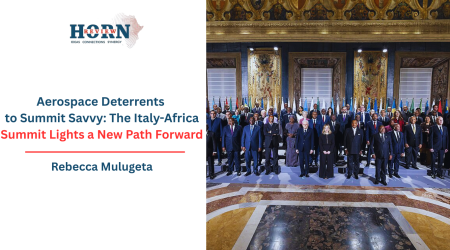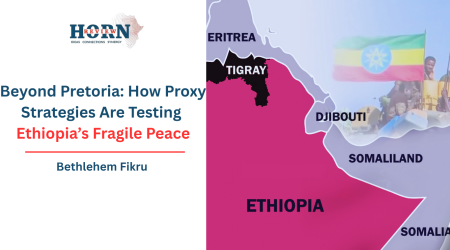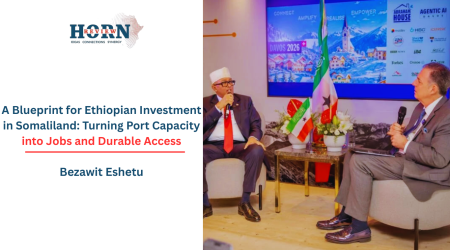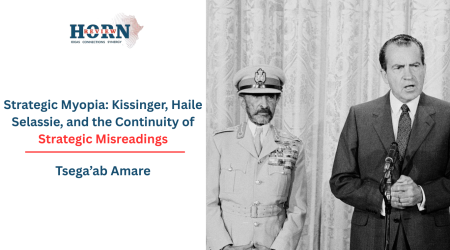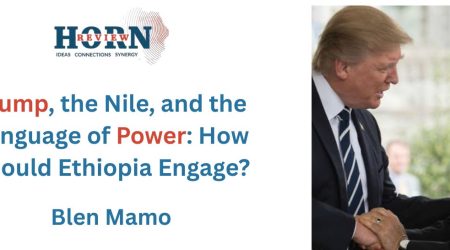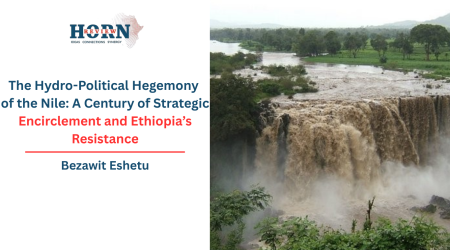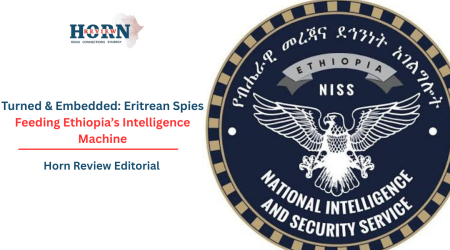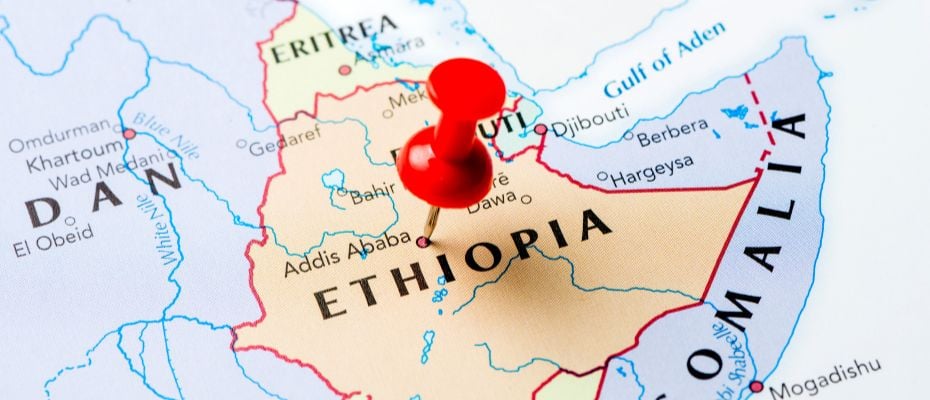
16
Jul
Fear, Fragmentation, and the ‘Goal-Post Shift’: Ethiopia’s Intellectual Dilemma
“The intelligentsia, properly conceived, must challenge power [and negativity], not sanctify it.” Noam Chomsky
In Ethiopia today, this imperative has been inverted. Many self-proclaimed intellectuals either engage in shallow criticism for the sake of being oppositional or repeat government narratives without critical thought, neither of which advances the nation’s resolve. As internal conflicts persist, economic and social divisions grow more pronounced, Ethiopia’s public discourse is dominated by superficial commentators whose shifting stances and lack of empirical rigor undermining policymaking and the country’s image. The intellectual environment has been frequently characterized by fragmentation and polarization.
This problem traces back to the 20th century, during the Emperor Haile Selassie’s period. The intellectual sphere was a complex and evolving landscape, marked by both modernization efforts and the emergence of critical voices challenging the existing order. There was a surge of reformist intellectuals, who championed modernization, constitutional governance, and land reform. Figures like Gabra-Heywat were instrumental in shaping early fiscal reforms, illustrating the tangible impact of intellectual engagement on state policy. The resulting generational void of the 1940s and 1950s set a precedent where intellectual loyalty was increasingly valued over independent critique, fostering a political culture of suspicion and discouraging critical engagement with the state.
During the Derg period, the intellectual sphere was heavily influenced by the administration’s socialist ideology, leading to both opportunities and constraints for intellectuals. While the Derg aimed to modernize and scientifically make socialist Ethiopia, resulting in literacy campaigns and educational reforms, it also suppressed dissenting voices and imposed a specific ideological line, particularly concerning Marxism-Leninism. This suppression and co-option of intellectuals left a deep psychological scar, perpetuating a “chilling effect” on academic freedom and explaining the contemporary reluctance of heavyweight intellectuals to participate openly in public discourse.
The enduring fear of state reprisal, passed down through generations, continues to shape the cautious and often silent stance of Ethiopia’s intellectual class today. Under the EPRDF, technocratic institutions flourished in name but remained tightly steered by the ruling coalition, marginalizing heavyweight scholars and empowering self-styled commentators.
Even though the political liberalization initiated in 2018, opened new avenues for expression, it has concurrently exposed significant vulnerabilities within the intellectual sphere. This includes a notable rise of voices that prioritize political activism over rigorous, data-driven analysis.
A core challenge identified is the “goal post shift” among certain self-proclaimed intellectuals. This refers to a prevailing tendency to define intellectualism primarily through negativity or opposition to the government, rather than through objective, evidence-based critique. This approach often demonstrates a marked lack of intellectual rigor and consistency in its arguments.
This phenomenon is further exacerbated by the pervasive influence of social media, where the pursuit of instant engagement and emotional resonance often overshadows nuanced debate. It fosters an environment where unsubstantiated opinion can readily masquerade as well-researched argument, and where aggressive activism can inadvertently invalidate genuine intellectual discourse.
A significant challenge in contemporary Ethiopian politics stems from the perceived dominance of “lightweight” intellectuals. These individuals often equate intellectualism with negativity towards any administration, exhibiting a marked lack of rigor and a tendency to shift their stances opportunistically. Their arguments frequently lack data-driven foundations and are instead rooted in opinion.
The observed lack of intellectual rigor and data-driven arguments is both a cause and an effect: it enables the proliferation of superficial critique and renders intellectuals susceptible to political co-option, thereby further eroding public trust in their objectivity and independent voice. The identified lack of critical thinking and data-driven arguments is crucial, as it provides the intellectual vacuum that allows these shifts to occur. If arguments are not grounded in objective data, they become easily adaptable to political winds or personal gain, leading to the “goal post shift” and undermining the credibility of intellectual discourse.
Social media, while democratizing access to information and expression, has paradoxically become a primary vector for the “goal post shift” problem. It fosters an environment where emotional lability and identity-based narratives frequently override rational, data-driven discourse, making it exceedingly difficult to distinguish between genuine research, legitimate activism, and mere personal opinion.
This pervasive fragmentation and polarization on digital platforms directly translates into real-world societal divisions and significantly complicates efforts for national unity and stability. The diaspora’s active, yet often polarized, role in this environment demonstrates how opinion-driven activism can undermine rigorous discourse. The ease of spreading unverified claims on these platforms blurs the lines between research, activism, and opinion, making it difficult for the public and external actors to discern objective truth.
The blurring of lines between activism, research, and opinion is a symptom of a deeper crisis in intellectual integrity, where personal or group affiliations especially ethnic identity frequently supersede the pursuit of objective truth. This is further compounded by a political system in Ethiopia where ethnic identity has become the primary avenue for political activity and power acquisition, creating a perverse incentive for intellectuals to prioritize group-specific narratives over broader national cohesion or rigorous, impartial analysis.
This suggests that the lack of objectivity is not merely a personal failing but is structurally incentivized by the political landscape of the country for many years.
In contrast, the silence and disengagement of “heavyweight” intellectuals are a direct and logical consequence of a long history of state repression and the various administrations’ strategic “epistemicide” tactics (i.e. the killing, silencing, annihilation, or devaluing of a knowledge system.). This creates a self-reinforcing cycle: fear leads to disengagement, which further weakens the independent intellectual space, making it easier for the government to control narratives and marginalize genuinely critical voices.
This sustained lack of critical engagement from established scholars leaves a dangerous vacuum, which is then readily filled by less rigorous and often more polarizing voices. The systematic pressure, both physical and psychological, directly causes the fear of being labeled a “government cadre” and leads to self-censorship and disengagement. This causal chain explains why a vital segment of the intellectual community is absent from public discourse, contributing to the dominance of “lightweight” voices.
Moreover, Ethiopian politics is characterized by extreme polarization, with a notable absence of a critical mass in the middle. The persistent absence of a critical middle ground in Ethiopian politics is a historical legacy, significantly exacerbated by the implementation and interpretation of ethnic federalism and the political climate. This profound polarization makes it exceedingly challenging for intellectuals to advocate for national unity, objective analysis, or compromise without being accused of bias or alignment with one extreme. It effectively traps intellectual discourse in a rigid binary, preventing the development of nuanced, inclusive, and unifying solutions essential for long-term stability. When political discourse is dominated by extremist forces and a zero-sum mentality, intellectuals attempting to offer nuanced perspectives risk being attacked or dismissed, thereby reinforcing the very polarization they seek to address.
It can significantly influence international perceptions and impact foreign aid policies. Western media coverage of conflicts in Ethiopia, such as the Tigray crisis, has been criticized for being less prominent or empathetic compared to other global conflicts, and for distorting narratives. This media portrayal can significantly shape the information environment available to foreign embassies and policymakers.
This poses a significant risk to Ethiopia’s foreign relations, as policy decisions in host countries could inadvertently be based on a fragmented or distorted understanding of Ethiopia’s internal dynamics, rather than on comprehensive, objective analysis. It directly influences how foreign governments perceive and interact with Ethiopia, often relying on unfiltered, potentially biased narratives emanating from these polarized intellectual circles.
Globally, the Ethiopian case highlights how unchecked online activism can distort conflict reporting, impede humanitarian response, as during the Tigray war’s rival propaganda campaigns and undercut investor confidence. Intellectual superficiality is no longer a domestic nuisance; it is a vector of geopolitical risk.
A corrective strategy must therefore be multi-layered and pragmatic. Strengthening peer-reviewed policy institutes with ring-fenced funding and legislated autonomy so that heavyweight scholars can publish without partisan suspicion, is crucial.
Moreover, require foreign missions and multilateral donors to diversify briefings: embassy staff should meet accredited universities and registered think tanks before issuing political assessments, reducing reliance on volatile social-media feeds.
Without this foundation, intellectual discourse remains vulnerable to manipulation and polarization. Promoting critical thinking, supporting independent research, and countering disinformation are direct, pragmatic responses to these identified deficiencies. These measures aim to shift the “goal post” back towards objective truth.
By Horn Review Editorial
REFERENCES
- Aboye, A.A. (2021). Political Ideology And Academic Autonomy In Ethiopia. Journal of Comparative & International Higher Education.
- Zhu, Y. (2025). Academic Freedom at a Crossroads: The Influence of Radical Social Justice Ideologies on Open Inquiry and Public Discourse. Proceedings of The World Conference on Research in Social Sciences.
- Workneh, T.W. (2020). Social media, protest, & outrage communication in Ethiopia: toward fractured publics or pluralistic polity? Information, Communication & Society, 24, 309 – 328.
- Dessalegn Yeshambel Wassie, Mulatu Alemayehu Moges & Biset Ayalew Nigatu (2024) The vexed question of Ethiopian identity-driven politics and the discourse of political communication in the digital media sphere, Cogent Arts & Humanities, 11:1, 2308727,

